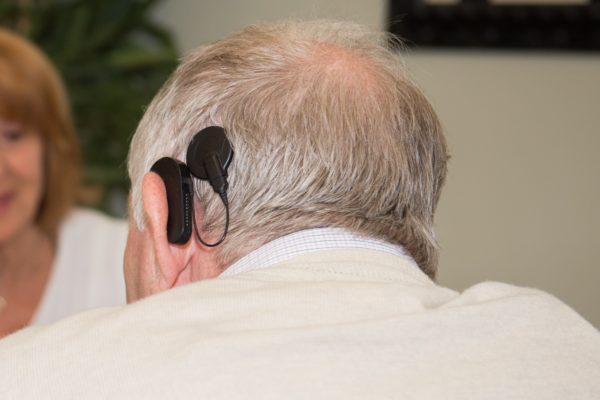Is your hearing aid or cochlear implant part of your body or merely a piece of property?

By Dr Rachael Dixon
University of Birmingham
The law as it stands operates on a person-thing distinction meaning law applies to either a person or a thing. Advances in medical device technology have seen persons and things become increasingly intertwined.
Many people have become ‘Everyday Cyborgs’. This is a term we use in our research that can be used to describe people with attached and implanted medical devices. This includes people with a wide range of devices; for example, joint replacements, pacemakers, insulin pumps, limb prostheses, and hearing aids/Cochlear Implants.
No everyone may feel or think of themselves as a cyborg but in our research the imagery of persons with medical devices as everyday cyborgs helps us expose challenges and problems with the law. We use the term as a provocation to open up the conversation around what it is like to live with a medical device and are interested in hearing a wide range of views and experiences.
We want to better understand how such devices contribute to people’s day-to-day lived experience and consider the role law ought to have in how these devices are developed, used, and treated. Further, we want to consider whether emerging ‘smart’ technologies, and devices that generate data, pose new or heightened challenges to the law or whether the issues raised in relation to these novel technologies echo longer held views on the integration of medical devices with their user.
We are interested in talking to people with attached, wearable, implanted, and complex medical devices. We want to hear their views. Participation in the project would involve meeting with one of our researchers, either in-person or online, to discuss your experience of living with your hearing aid or Cochlear Implant and your thoughts on the governance and regulation of medical device technologies (you do not need to know anything about this to participate).
More information on our project and the work we have done to date: https://blog.bham.ac.uk/everydaycyborgs/
More information on the study: https://blog.bham.ac.uk/everydaycyborgs/get-involved/
If you would like to participate in our research, or receive more information, email us: everydaycyborgs@contacts.bham.ac.uk
This research is funded by the Wellcome Trust. The research is being carried out and organised by researchers at Birmingham Law School, University of Birmingham. The research has been approved by the University of Birmingham Research Ethics Committee (approval numbers ERN_18-1426).